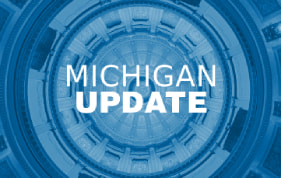
1030 Results found.


Louisiana Releases Medicaid Managed Care RFP
This week our In Focus section reviews the Louisiana Medicaid managed care request for proposals (RFP) released on June 23, 2021, by the Louisiana Department of Health. Louisiana is seeking full-risk health plans to serve approximately 1.6 million Medicaid beneficiaries. Contracts are worth approximately $9 billion annually.

State efforts to integrate care across Medicaid FFS LTSS and Medicare Advantage D-SNPs
This week, our In Focus section reviews a new paper from Health Management Associates,State Efforts to Integrate Care Across Medicaid Fee-for-Service Long-Term Services and Supports and Medicare Advantage Dual Eligible Special Needs Plans by Sarah Barth, Rachel Deadmon and Julie Faulhaber. Funded by UnitedHealthcare, this paper outlines approaches taken by Medicaid programs seeking to coordinate Medicare and Medicaid services for dually eligible individuals without first implementing standalone Medicaid managed long-term services and supports (MLTSS) programs.

HMA brief examines state efforts to integrate care across Medicaid FFS LTSS and Medicare Advantage D-SNPs
Funded by UnitedHealthcare, the issue brief, State Efforts to Integrate Care Across Medicaid Fee-for-Service Long-Term Services and Supports and Medicare Advantage Dual Eligible Special Needs Plans, outlines approaches taken by Medicaid programs seeking to coordinate Medicare and Medicaid services for dually eligible individuals without first implementing standalone Medicaid managed long-term services and supports (MLTSS) programs.
Authors are Sarah Barth, Rachel Deadmon and Julie Faulhaber.

COVID-19 policy flexibilities impacting children and youth with special healthcare needs
This week, our In Focus section reviews a new report from Health Management Associates, COVID-19 Policy Flexibilities Affecting Children and Youth with Special Health Care Needs: What to Keep, Modify, or Discard?. In response to the COVID-19 pandemic, the federal government and states rapidly established new, temporary regulations and flexibilities, while providers deployed innovative technologies to connect with their patients. The report examines how COVID-19 and the responses by federal and state governments, health systems, and providers affect health care for children and youth with special health care needs (CYSHCN).

HMA report examines COVID-19 policy flexibility for children, youth with special needs
A new report by HMA colleagues looks at policies, including new emergency regulations and temporary flexibilities, put in place during the COVID-19 pandemic.

Webinar Replay: Advancing Health Justice for Medicaid Members with Disabilities, Including Those with Mental Illness and Substance Use Disorder
This webinar, held on June 25, 2021 and was the sixth webinar in the series “Exploring the Landscape of Behavioral Healthcare,” covering the growing impact of behavioral healthcare on clinical outcomes and cost.”
State Medicaid programs must address health disparities and advance health justice for members with disabilities – including those with mental illness and substance use disorder (SUD). Our presenters outlined the path forward in the 2021 report, Advancing Health Justice Using Medicaid Data: Key Lessons from Minnesota for the Nation, produced by AcademyHealth, Disability Policy Consortium (DPC), and Health Management Associates (HMA). During this webinar, speakers from DPC and HMA discussed how to measure health disparities, present the evidence on health disparities from one state’s Medicaid program, and discussed what federal and state policymakers can do to address health justice stemming from racial injustice, discrimination, bias, and stigma in our healthcare system.
Learning Objectives
- Understand what health justice and other related terms mean
- Learn how to measure health disparities affecting Medicaid members with disabilities – including those with mental illness and SUD
- Examine evidence on health disparities from one state Medicaid program’s efforts
- Consider the national implications of this evidence on Medicaid members
- Review what actions policymakers can take to advance health justice
Speakers
- Ellen Breslin, MPP. Principal, HMA, Boston, MA
- Dennis Heaphy, M.Div. M.Ed. MPH, Health Justice Policy Analyst, Disability Policy Consortium, Malden, MA
- Anissa Lambertino, PhD., Senior Consultant, HMA, Chicago, IL

Tennessee Releases Medicaid Managed Care RFP
This week our In Focus reviews the Tennessee Medicaid managed care request for proposals (RFP) released on June 11, 2021, by the State of Tennessee, Division of TennCare. Tennessee will select three plans to provide physical services, behavioral services, and Managed Long-Term Services and Supports (MLTSS), including nursing facility services and home and community-based services (HCBS), to beneficiaries enrolled in TennCare (Medicaid), CoverKids (Children’s Health Insurance Program), and Dual Eligible Special Needs Plans (D-SNP). Current incumbents serve over 1.5 million beneficiaries, with contracts worth $12 billion annually.

